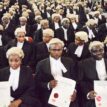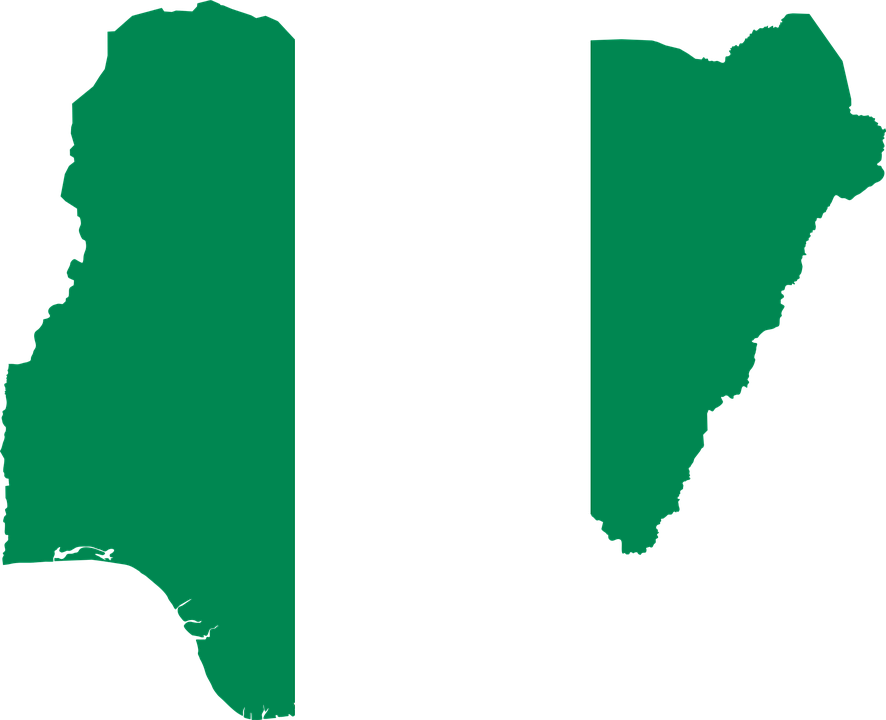

•Call for mass action against ruling class
•Say political leaders not inspired by desire to serve
•Advocate capital punishment for corruption
•Resolve we can not continue like this
By Dayo Johnson; Jimitota Onoyume; Peter Duru; Rotimi Ojomoyela; Iheamnachor Davies; Shina Abubakar; Ozioruva Aliu; James Ogunnaike & Ibrahim Hassan
President Muhammadu Buhari-led All Progressives Congress, APC came topower on a three-point agenda to tackle insecurity, improve the economy and fight corruption. Efforts no doubt have been made by this administration in these areas, but these remain work in progress and have not translated into the much needed impact on the populace.
The economy, according to the citizens, has not fared better, while terrorists and bandits are still having a field day kidnapping, killing and destroying property.
READ ALSOGlobal Covid-19 death toll passes two million
Corruption has also remained a big challenge for the administration which a member of the administration, Professor Itse Sagay, SAN, attested to recently. Professor Sagay, who is the Chairman of the Presidential Advisory Committee Against Corruption (PACAC), said that Nigeria was at crossroads and overwhelmed by corruption which had become a way of life for the elite who he accused of wheeling and dealing with the fate of the country.
Speaking at an interactive virtual dialogue organized by PACAC a couple of months ago with the theme: “Collective responsibility and action in the fight against corruption”, Sagay submitted that “corruption is so pervasive in the different sectors and levels of society”.
According to him, “several senior public officials and political appointees are neck-deep in corruption. Civil servants play significant roles in the perpetuation of corruption. A majority of the elite sees corruption as normal and a legitimate means of wealth accumulation. There is no consensus among elites about the disastrous consequences of corruption, which makes it difficult to fight the problem. Several corrupt practices are also perpetrated by federal legislators and committees in the legislature. The Judiciary has, to some extent, been compromised by corruption, usually in decisions that favour and protect powerful corrupt persons in the country.” He however assured that the Muhammadu Buhari’s administration was determined to curb it.
Sagay’s admission that Nigeria is overwhelmed by corruption and at crossroads, seems to speaks volumes of the impact of the corruption menace in Nigeria.
Reacting to Sagay’s assertion, lawyers across the country proffered reasons the government has found it difficult to curb corruption. They believed the political leaders are not inspired by desire to serve the people but what they can take from the system.
They therefore called for mass action against the ruling class while some suggested a legislation that will make corruption a capital offence punishable by death in Nigeria.
Dr Osagie Obayuwana, former Attorney General and Commissioner for Justice, Edo state and human rights activist, said the situation was not hopeless as presented by Sagay but that mass action can make the difference and change the narrative even though all strata of the society are involved. According to him: “certainly, Nigeria is entangled by corruption.
The leadership of Nigeria is historically those who have been entangled with corruption. The leadership is setting a corrupt standard for others to follow, the result is there.
The essence of governance in Nigeria is entrenched in corruption right from the colonial times, it is what they can get out of the people, what they can get out of the system that motivates political leaders in the country.
The political leaders in the country are not inspired by the desire to serve, so that is why contracts are awarded with corrupt intentions; every aspect of the country is affected by corruption. It is the victims that are protecting their interests that must rise up. Members of the ruling class are alternating themselves, so corruption will continue to thrive; inflation of contracts will continue to be the order of the day. Of course there is a dimension to it which affects all, for instance, the police will pretend to be offering protection but every aspect of the service they render is rooted in corruption.
The complainants are extorted, the victims are extorted, the suspects are extorted, so at the end of the day police make money from all sides and the job is not done.
“For instance, the Ministry of Works will pretend that they want to tar roads but at the end of the day, the work is not done to specification and the supervising engineers from the ministry are compelled to look the other way.
Corruption is all over but the ruling class takes the lion share. The messenger in the office wants money to move files because he knows what the permanent secretary and his boss are making from the subject matter in the file.
The people must rise because the people are not part of the budgeting system which is made to create opportunities for the ruling class and their business partners. So, it is something that has to be addressed from the root level; that is why I said revolutionary approach is the way out because we cannot throw up our hands and say there is nothing that can be done about it. That is why I don’t agree that Nigeria is helpless, if you say so, it means there is no future for this country whereas there is a future.
It is those who have held us down that have no future in this country but we are tilting towards a fundamental revolt against this order. The country is moving backward but we used to say forward ever, the country is overdue for mass action against corruption.”
Dr Akpo Mudiaga Odje, constitutional lawyer said, “I am in concord with our great teacher and master on his observations on corruption in Nigeria. The incubus called corruption in Nigeria has over the years been evolving into frightening dimensions from all sectors of governance. Corruption has eaten up the entire fabric of our nation. Little wonder the supreme Court in AG Ondo V AG of the Federation, in 2000 ruled that the Nigerian passport is synonymous with corruption!
Government has found it very difficult to tame corruption because of institutional failure in the supervision of the various agencies in public and private sectors. These regulatory bodies have not lived up to their billing.
They have to be reformed for effective monitoring of these agencies. The anti graft institutions need proper funding and should be strengthened to cope with the dynamics of corruption.
Government, most importantly needs to carry out a comprehensive reform of the judiciary to enable same cope with the litany and avalanche of corruption cases already suffocating the judges and their courts. Obviously, there is an endemic paucity of judges, courts and para legals required to facilitate the effective prosecution of corruption cases.
And that is why trials last up to 15years but thanks to the Administration of Justice Act, 2005 and those replicated by the States for ensuring speedy trials in criminal cases. Although the apex court recently disapproved the continuous handling of a criminal matter by an elevated trial judge, the Act is a welcome development. Government should re-awaken our collective spirit of patriotism to our country.
The revelations from the house hearing on NDDC are to say the least, stupendously shameful. That’s what I earlier referred to as the failure of the regulators to monitor these agencies! If we prescribe death sentence for corruption, I think Nigeria will become a Desert!! Finally, our leaders should lead by incorruptible records and sincere governance as those would motivate all of us to follow suit.
Cleric E. Alaowei, National President, Centre for Human Rights and Anti-corruption Crusade (CHURAC):
Corruption in Nigeria is inbuilt. It is embedded in the characters and attitudes of the people. We should not deceive ourselves, it is not only tied to those in public offices.
The mindset of an average Nigerian is corrupt. That is why you see people celebrating some corrupt personnel in public offices as their heroes.
The common people who are at the receiving end of the corruption in governments circles are justifying the corrupt tendencies of their heroes. What a shame. Prof Sagay is correct. Notwithstanding his position as a Presidential Adviser against corruption, he openly justified the corrupt tendencies of his APC members. Our hearts are so soaked with corruptible mindsets. To me, the way out as I used to say is to make corruption a capital offence in Nigeria. In China, corruption is a capital offence.
Why can’t we practice the same thing here? I believe such will go a long way to curb this illicit practice in the Country.
Chief Sola Ebiseni, former commissioner in Ondo state and member of 2014 National Confab, said “Corruption stems from the natural human tendency for undue advantage based on fear of the unknown and survival of the fittest. Every society therefore evolves and deploys governance systems that tame such tendencies. It is a truism that power corrupts and absolute power corrupts absolutely. Whether we believe it or not, whether we like it or not, corruption graduates in the ascending order of our political structures, that is, corruption is heavier from the local to the federal level.
A federal arrangement that concentrates about 55% of our national wealth in the central government, which is evidently less relevant to the welfare of the people, leaves so much idle resources to satisfy the greed of the gladiators. In Nigeria, when a person is given a political office or attains a certain high level in the civil service at the federal level or in the military service of the federation, the expectation of his people is that he should be smart enough to corner so much of federal resources that is regarded as no man’s property. The solution speaks for itself. We must restructure Nigeria along the true federalism which we currently hypocritically profess, so that resources percolate to the federating states closer to the people for development. If the system is organized in such a way that an individual is sure of his welfare even after service, corruption tendencies will largely abate.
Hon. Oludotun Fasanya, legal practitioner, former member, Ogun State House of Assembly contended that, “corruption in Nigeria has reached such abysmal stage that we can safely say that it is now endemic. Corruption in Nigeria has assumed a cultural status; it’s a way of life and this is why successive governments have failed in their bids to cure this malaise. The way out is by total reorientation of the individual Nigerians.
We should first cleanse and purge ourselves of this malady already eating away all the fabrics of our social existence.
This is because the leaders came from amongst us and therefore, are susceptible to corrupt practices. Let’s start what in some other climes, is called “personality audit”.
This entails investigating an individual’s sources of income if it is observed that he or she is living beyond his or her means. For instance, someone who only had a house and one rickety car before taking up a public office, within a year or two has built or bought two to three houses, different exotic cars, etc, whereas his or her salary cannot justify these assets, then such person should be properly investigated and audited. Also, a young graduate, who just a day before was begging for some money to eat, today brags about with a state of the art car, spends lavishly and buys things which a bank managing director cannot afford, such person ought to be investigated.
If this can be carried out with sincerity of purpose, corruption or corrupt practices and even crimes will reduce if not totally eliminated.
Mr Wale Afolabi, former Osun State Attorney
—General and Commissioner for Justice, believes Nigeria is not at crossroad in the fight against corruption but that the will to prosecute the battle is lacking.
“I disagree with Professor Sagay on that issue, I think it is better to say President Muhammadu Buhari is at crossroad not Nigeria.
We have our laws firmly written to fight corruption but some persons have jeopardised the campaign for political gains. It is on record that the immediate past Chairman of the All Progressives Congress, Adams Oshiomole was boasting in public that the moment some politicians crossed to the party, they were free of corruption, so how do you expect such party, controlling state apparatus to fight corruption effectively? We are all aware that corruption has its way of fighting back but once the President remains resolute everything will eventually fall in place. For me, the president is doing his best but some people within the Presidency have let him down.
If you feel somebody siphoned public fund, you take him to court and let him refund such fund but the will to see cases through is lacking. Prior to the conduct of the 2019 General elections, the APC was forming alliances with different persons who had corruption cases with either the ICPC or EFCC just to win elections, so how do you win such a battle when you already reach a compromise with those alleged of corruption. As far as I am concerned, Nigerian laws against corruption were firm but the President is at crossroad because of those undermining his authority”.
Mr Awoniyi Alabi, former National Legal Adviser of the Nigeria Bar Association, NBA, agreed with the law Professor that Nigeria is bedeviled with corruption. According to him, “if Nigeria can solve the issue of corruption, 70% of our problems will be solved but in fighting corruption in the country, the approach must be total.
The fight must not be selective or based on political affiliation or friendship, the leadership must approach it with utmost sincerity no matter whose horse is gored. For me, part of the practical approach to solving the problem is to first of all review the emolument of political office holders. Their emolument is too humongous and I don’t think the beneficiaries are ready to give it up for the sake of the country.
If the Federal Government believes that to solve the nation’s economic problem, 80% of the population must bear the suffering, then corruption will not stop. Just recently, prices of PMS and electricity tariff were increased, civil servants who served for 35 years are not sure of their gratuities and pensions, then how do we stop them from stealing. Political office holders’ total emolument should be reduced by 50% and whatever is realised from the proceed can take care of such economic problems.
Mr Tajudeen Ahmed, Chairman, NBA, Owo Branch, submitted that, “government has found it difficult to curb corruption because it lacks the needed courage and wherewithal.
It does not have what it takes as well. After all, one cannot give what one does not have.
This government’s mantra was to fight corruption and fight it to a standstill when they were campaigning for election. Unfortunately, the government has reneged on the main kernel of her campaign.
A situation where the President and other government officials still go for medical care outside this country in spite of the clear provision of the National Health Act forbidding same is fraudulent and corruption laden. A situation where the head of the anti corruption agency, EFCC, is alleged to be involved in monumental corrupt deals is highly worrisome. In most cases, government has been very supine in fighting corruption.
Responses to corrupt allegations have been very slow and sluggish in most cases. This is largely because most of the individuals and organisations alleged of corrupt practices are in the good book of the government of the day.
The legendary Itse Sagay is therefore right in his submission that Nigeria is at a crossroad and that the nation is overwhelmed by corruption. Government will continue to shy away from battling corruption to a standstill until the players are imbued with the needed courage and commitment to wage war against the hydra headed ailment of corruption”.
Mr Eric Omare, former National president, Ijaw Youth Council:
First, I think Prof. Sagay has said the obvious that Nigeria is overwhelmed by corruption.
I commend him for saying the truth even though he was in self denial for a very long time that the Buhari administration was fighting corruption. In my view, we are at a crossroad because of failure of leadership. Over the years, the leadership of the country has not been able to demonstrate sincerity of purpose in the fight against corruption. The situation is worsened by the crisis of confidence rocking the leadership of the front line anti-corruption agency, the EFCC.
This is most disappointing because Nigerians had expected that if anything, President Buhari should be able to record remarkable gains in the anti-corruption war but unfortunately corruption is on the increase. On the way forward, I don’t think that there is anything worthwhile that can still come out of the present administration. I think that President Buhari has exhausted his capacity and he cannot give what he doesn’t have.
What Nigerians should be looking at is to make the fight against corruption and economy recovery a front line issue in the next elections. I say so because I don’t believe that the present administration can still achieve anything significant for this country in any area of our national life.
Mr Olayiwola Afolabi, Public Notary:
“President Muhammadu Buhari’s administration has not shown enough commitment to fight corruption. Professor Sagay is right, the more Buhari is claiming to fight corruption, the more corruption is surrounding him. If you are in a party that is corrupt once you join the party, they will forgive you your sins.
The ruling party is selective in its fight against corruption, there is no sincerity there. If you are in the ruling party and you are corrupt, you will be protected, this cannot happen in a civilised country except only in Nigeria, so there is no sincerity. Adams Oshiomhole said when he was the national chairman of the APC that when a politician defected to the party, the politician would be told his sins were forgiven. It means even if you are corrupt, once you join the ruling party, you are a free man.”
Mr Higher King, Port Harcourt based senior lawyer and human rights advocate, argued that corruption has continued unabated because of the lapses in the nation’s constitution, and submitted that the only way to tackle corruption in the country head on was to amend the constitution.
According to him, “the reason Nigeria has not been able to tame corruption is because the system embodies and encourages corruption. The system approves you to be corrupt and enforces you to be corrupt. The President has corrupt people around him because the constitution permits it. You don’t give fish to a cat to supervise.
Like the case of Magu, I am not saying he is corrupt, but we are seeing a case of a hunter being hunted.
The system is completely corrupt, the constitution encourages people in public offices to be corrupt. If we say let’s get the right people into office, where are we going to get them, they will still work with the same constitution we are complaining about.
The way out is to overhaul and restructure the system, if possible embark on constitutional amendment and make stiffer penalty for corruption and follow it up, not what we have presently. It is difficulty to run the country if the constitution is not amended to strengthen the fight against corruption.”
Mr Justin Gbagir, Chairman, Nigeria Bar Association, NBA, Makurdi branch:
“For so long, corruption has eaten deep into our fabric as a nation.
And any attempt we make to fight corruption, we will find that almost every family is either affected or infected by corruption. So, when you want to fight corruption those who are against you are more than those who are supporting you. In fact, those who are already into corrupt practices are less in number than those who are waiting for opportunity to be corrupt. So, instead of people supporting the fight against corruption, they are waiting for any opportunity that will make them be in position to also be corrupt.
We are therefore in a situation where you find yourself in a system where you want to do the right thing, but the system also gangs up against you.
That is the big challenge we have in this country. I think we need reorientation and a change of attitude of all of us because as long as we do not see anything wrong in people being corrupt, the fight against corrupt practices will continue to be a mirage, we will never achieve any result.
We must have a change of attitude because even when you go to churches which is supposed to be the moral compass, you will discover that we have taken our corrupt practices there. When you go to church and make donation, your pastor or priest does not care about where and how you got the money. When you are given an appointment, the church organises a thanksgiving or reception for you and you begin to make huge donations to the church and they do not know how you get the money. I do not know about the Muslim faithful but I am talking as a Christian.
It is a serious problem, that is why I have always advocated that if we must fight corruption, first and foremost we need to get those who have already enriched themselves through corrupt means to return the wealth they wrongly accumulated to the state treasury. It is only then that we will have the moral justification to demand that other people should not be corrupt. We can also declare corruption amnesty, let those who have acquired wealth through corrupt means return the wealth they acquired overtime to the state treasury.
I believe that by the time we do that, we will also have enough resources to also provide infrastructure for the common people. From then, we will begin to demand transparency and accountability from others who ordinarily would have been involved in corruption. We can start from the civil servants.
In some instances when you see a house that has been built by a civil servant who earns less than N200,000 a month you will express shock on how he got the money. When somebody is given a political appointment or gets into elective office and after a time you see the kind of property he has acquired all over the place you begin to imagine where he got the money. So, the government can request them to return the money and property to the coffers of government, through the amnesty which gives them the option of returning them. But if they don’t return them the government should go further to do audit of property of these office holders and if it is found that their legitimate means could not have given them the property they own, they should be confiscated. So, we should devise strategic means of fighting corruption in this country, because what I see the Economic and Financial Crimes Commission, EFCC, the Independent Corrupt Practices and other related offenses Commission, ICPC, and the Code of Conduct Bureau do is window dressing.
They are not getting to the root cause of the matter.
Look at the issue of pensioners that are not being paid, somebody worked for 35 years and retired and he is not paid his entitlement and you expect those who are still working not to be corrupt or not to acquire wealth that they will fall back to when they retire. So those are the issues that need to be addressed in order to effectively fight corruption.”
Prof. David Ikonni, Law lecturer, former ASUU Chairman, Benue State University, chapter:
“I don not think that Nigeria is at a cross road. For me, the problem with corruption in the country has to do with the leadership that we have in the country.
The leadership challenge as it is today is anchored on falsification and falsehood. Before this government took over in 2015, they promised Nigerians everything good including fighting corruption.
That is why I said the leadership of this country is built on falsehood. So, they found their way into leadership position using corruption as foundation and bait to deceive Nigerians.
They did that because they believed that if they told Nigerians that they would fight corruption, Nigerians would give them the mandate.
Unfortunately they are not living up to that billing. So, as it is, I am not sure that we can get it right especially with the present leadership we have in this country. The government at the centre is weak, the president is weak, his government lacks direction.
He is not the one in charge of the responsibilities at the centre. So, there is no way he would be able to fight corruption. We are in a very pathetic situation and I feel that as at today the only option we have is for us to take our destiny in our hands.
Let us therefore restructure this country giving more powers to the region and have a loose and less powerful centre. Everyday we hear accusations and counter accusations about who is sponsoring the Boko Haram insurgency in the North East but no action has been taken to investigate the matter. It is sad. Regrettably, when you say we are at a crossroad it implies that we are almost giving up. But we shall not give up, we shall fine tune what we have to address the challenge.
I think it is high time we convene a constituent assembly where issues concerning this country are trashed because we cannot continue like this.”
Mr Chris Nnoli, Kaduna based legal practitioner:
Yes, corruption is high in Nigeria but no government in this country has ever made the kind of recovery effected by the current administration.
As far as I am concerned, this administration has done well in terms of loot recovery, that shows they are serious in fighting corruption. Corruption is the subversion of public institutions, processes and goods for the benefit of a few persons or their associates. The substructures that fuel corruption indicate that it thrives where there is a high percentage of ethical and moral deficit in the populace.
Societies with high inflation rates, lack of social safety nets, poor infrastructure, poor access to good, quality health and educational services, high unemployment rates amongst the youth provide fertile grounds for corruption. If all that I mentioned are not put in place it will be difficult to tame corruption. But the present government needs to do more in making sure that all the agencies saddled with the responsibility to fight corruption are given free hands to operate and competent persons are allowed to head the various agencies. Also, educational institutions, NYSC, military and paramilitary organisations must be encouraged to be universal in nature so that all citizens can have a stake and buy-in that these are national institutions.
However, government needs to do proper monitoring, adequate payment of salaries, appointments and creation of more jobs for the unemployed to get their minds off crime.
Mr Hiifan A. Abuul, Kaduna lawyer:
It is unimaginable that despite decades of crusade against corruption and the numerous state agencies and bodies established to fight corruption we are yet to overcome as a nation. We have to look at some of the difficulties and challenges confronting the war against corruption in the country.
There is lack of respect and adherence to the rule of law, thus making our society seemingly lawless, both the leadership and the followership are not excepted. It gives rise to decisions of governance being ultra-vires, tailored by the caprices of the leaders and lack of due process.
Much powers are vested in the hands of the Federal government which dictate what happens to other units.
The Federal Government is in full control of resources and the security apparatus which are sometimes negatively used to oppress perceived opponents. There is also the collapse of the entire social system and value chain beginning from the family, schools, religious institution, traditional leadership and the role of the media which led to the high level of moral decadence, criminality and poor leadership.
There is no standard in our recruitment process as merit is exchanged for mediocrity while morality and federal character are subdued under political might and influence paving way for feelings of exclusion and marginalisation.
These and many others are factors confronting the fight against corruption in Nigeria. On the way out, there must be supremacy of the rule of law over all persons and authorities, independence / autonomy of the judiciary, local government, EFCC, ICPC and press freedom as well as restructuring, devolution and decentralization of power. We must also ensure accountability, transparency, ethical practices, due process, separation of power and sound bureaucratic norms in our public life.
The post Why Nigeria is unable to curb corruption – Lawyers appeared first on Vanguard News.














![[Music] Brisco Ft Meddy _ On God](https://1.bp.blogspot.com/-rjroVTQC4fc/Xqqrc7SrVNI/AAAAAAAABoQ/O9lNUBxpG3ErBDFxTXyyiNC6gEhblQ6lACLcBGAsYHQ/w680/brisco%2Bft%2Bmeddy%2BFINAL.jpg)







0 Comments
Advertise your business here at cheap rate and get large audience to your market. Call/Msg Teemikemedia: 07060733664 to get started.